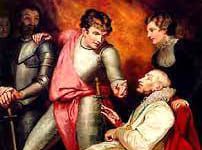Political Cultural and Social Aspects of the Renaissance

Political Cultural and Social Aspects of the Renaissance
Political Cultural and Social Aspects of the Renaissance
Introduction
The Renaissance, a period spanning roughly from the 14th to the 17th century, witnessed a profound transformation in Europe across political, cultural, and social spheres. This era marked a departure from medieval traditions, fostering a renewed interest in classical knowledge, art, and humanism.
Political Renaissance
City-States and Political Change
In Italy, the birthplace of the Renaissance, city-states like Florence, Venice, and Milan experienced significant political changes. The decline of feudalism allowed for the rise of powerful merchant classes and the establishment of more secular forms of governance.
Papal Influence and Secularism
The Papal States, under the control of the Catholic Church, played a central role in Italian politics. However, the Renaissance also witnessed a move toward secularism, with rulers prioritizing worldly affairs over religious concerns.
Machiavelli and Political Philosophy
Niccolò Machiavelli, a prominent political philosopher of the Renaissance, authored “The Prince,” offering insights into statecraft and political leadership. His pragmatic approach emphasized the pursuit of power and the need for rulers to adapt to changing circumstances.
Cultural Renaissance
Rediscovery of Classical Knowledge
A hallmark of the Renaissance was the rediscovery of classical texts from ancient Greece and Rome. Humanists, scholars who championed the value of human intellect and creativity, played a pivotal role in reviving classical knowledge.
Artistic Renaissance
The Renaissance was a period of artistic flourishing, marked by a departure from medieval styles. Artists like Leonardo da Vinci, Michelangelo, and Raphael embraced realism, perspective, and a deep appreciation for the human form in their works.
Printing Press and Dissemination of Knowledge
The invention of the printing press by Johannes Gutenberg in the mid-15th century revolutionized the spread of knowledge. Printed books became more accessible, contributing to the dissemination of ideas and the democratization of information.
Social Renaissance
Changing Social Structures
Social structures underwent transformation during the Renaissance. The rise of a wealthy merchant class and increased urbanization led to shifts in social hierarchies, challenging traditional feudal norms.
Humanism and Education
Humanism, a cultural and intellectual movement, emphasized the value of human potential and individual achievement. This philosophy influenced education, with a focus on classical literature, rhetoric, and the liberal arts.
Role of Women
While gender roles were generally conservative, some women made notable contributions during the Renaissance. Women like Isabella d’Este and Catherine de’ Medici played influential roles in politics and patronage of the arts.
Legacy of the Renaissance
Scientific Revolution
The Renaissance laid the groundwork for the Scientific Revolution, challenging medieval views and fostering an empirical approach to understanding the natural world. Figures like Copernicus and Galileo made groundbreaking contributions.
Enlightenment
The Enlightenment, an intellectual movement of the 17th and 18th centuries, drew inspiration from Renaissance ideals of reason, individualism, and the pursuit of knowledge. It further advanced the ideas of human rights and political liberties.
Enduring Cultural Impact
The Renaissance’s cultural legacy endures in the form of art, literature, and philosophy. Masterpieces like Leonardo’s “Mona Lisa” and Shakespeare’s plays continue to captivate and inspire.
Conclusion
In conclusion, the Renaissance was a multifaceted and transformative period that left an indelible mark on political structures, cultural expressions, and social dynamics. Its emphasis on humanism, the arts, and the pursuit of knowledge set the stage for a new era of intellectual and creative exploration, shaping the course of Western history for centuries to come. 0 0 0.
N.B. The article originally belongs to the book entitled ‘Essays on Shakespeare and His Time‘ by Menonim Menonimus.
You May Like:
- Reviews on Shakespeare’s Works
- Shakespeare’s Sister-An Analytical Study
Additional Searches:
- Shakespeare’s Legacy Shaping Modern Literature
- Social, Economic and Political Aspects of the Renaissance …










